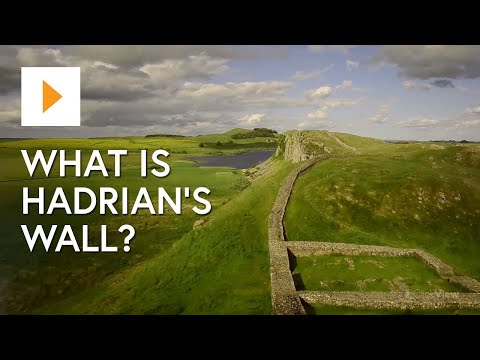Roman Britain was a period in history when the island of Britain was under Roman rule. It began in AD 43 and lasted for nearly 400 years. The Romans brought new technologies and built roads, towns, and forts across the land. They also introduced new laws and customs, and the Latin language. The Roman occupation of Britain had a significant impact on the culture and society of the island. Today, many archaeological sites in Britain still bear witness to this fascinating period in history.
Summary List
- Roman Britain was the part of the island of Great Britain controlled by the Roman Empire from AD 43 to AD 410.
- The Romans built roads, towns, and forts in Britain during their occupation.
- The Romans introduced new technologies and customs to Britain, including central heating and the Latin language.
- Julius Caesar attempted to invade Britain in 55 BC and 54 BC, but it was not until AD 43 that the Romans successfully conquered the island.
- After the Roman Empire collapsed, Britain was invaded by the Anglo-Saxons in the 5th century, leading to the end of Roman rule in Britain.
Games and Apps
Learning Modules
The Roman Conquest of Britain (43 AD)
Experience the epic tale of The Roman Conquest of Britain in 43 AD, as Julius Caesar's legions set foot on foreign shores, facing fierce Celtic tribes and treacherous terrain. Witness the clash of civilizations and the birth of a new era in this gripping historical account of conquest and resistance.
I Want To Learn This!Roman Britain
Roman Britain was a time of conquest, innovation, and cultural exchange. From Hadrian's Wall to the bustling city of Londinium, the Roman presence left a lasting impact on the island. Explore the lives of soldiers, citizens, and rulers in this fascinating era of history.
I Want To Learn This!The Romanization of Britain
"The Romanization of Britain explores the impact of Roman conquest on ancient Britain, shedding light on the transformation of society, culture, and governance. From Hadrian's Wall to Roman villas, this book delves into the fascinating history of how Britain became a province of the mighty Roman Empire."
I Want To Learn This!The Establishment of Londinium (43 AD)
In 43 AD, the Roman Empire established Londinium, a bustling city that would eventually become the thriving metropolis of London. With its strategic location along the Thames River, Londinium quickly grew into a center of commerce, culture, and political power, shaping the future of England for centuries to come.
I Want To Learn This!Romanization of local British tribes
Discover the fascinating process of Romanization in local British tribes, as ancient cultures clashed and melded under Roman rule. Learn about the influences of Roman technology, language, and customs on the indigenous people of Britain, shaping the course of history in unexpected ways.
I Want To Learn This!Establishment of Roman cities and towns in Britain
The establishment of Roman cities and towns in Britain marked a pivotal moment in the island's history. From Londinium to Camulodunum, these settlements served as centers of commerce, culture, and governance, shaping the landscape and influencing future developments in architecture, infrastructure, and social organization.
I Want To Learn This!Introduction of Roman law and administration in Britain
The introduction of Roman law and administration in Britain brought about significant changes to the legal and political landscape of the region. From the establishment of new legal codes to the implementation of efficient administrative systems, the Roman influence left a lasting impact on the governance of Britain.
I Want To Learn This!Boudicca’s Rebellion (60/61 AD)
Boudicca's Rebellion in 60/61 AD was a fierce uprising led by the Queen of the Iceni tribe against Roman occupation in Britain. With a small army, she successfully sacked several Roman settlements before being defeated in a final battle. Her legacy as a warrior queen lives on in history.
I Want To Learn This!The Construction of Roman Baths in Britain (75 AD)
Discover the fascinating history behind the construction of Roman baths in Britain in 75 AD. Learn about the engineering marvels and luxurious amenities that were enjoyed by ancient Romans, as well as the cultural significance of these communal bathing spaces in Roman society.
I Want To Learn This!Construction of Hadrian’s Wall (122 AD)
Construction of Hadrian's Wall in 122 AD was a monumental feat of engineering and military strategy. Stretching 73 miles across northern England, this imposing barrier marked the northern limit of the Roman Empire. Built to keep out barbarian tribes, it remains a symbol of Roman power and ingenuity to this day.
I Want To Learn This!The visit of Emperor Hadrian to Britain in 122 AD
In 122 AD, Emperor Hadrian embarked on a historic visit to Britain, leaving a lasting legacy with the construction of Hadrian's Wall. This monumental structure symbolized the Roman Empire's power and influence, while also serving as a physical barrier against barbarian invasions. Hadrian's visit forever changed the landscape of ancient Britain.
I Want To Learn This!The Antonine Plague (165-180 AD)
The Antonine Plague, also known as the Plague of Galen, ravaged the Roman Empire from 165-180 AD, claiming the lives of millions and causing widespread devastation. Believed to be smallpox or measles, this deadly pandemic had a profound impact on society, economy, and military campaigns of the time.
I Want To Learn This!Spread of Christianity in Roman Britain
Discover the fascinating story of how Christianity spread throughout Roman Britain, transforming the religious landscape of the empire. From humble beginnings to becoming the dominant faith, explore the challenges and triumphs faced by early Christians as they navigated a complex and often hostile society.
I Want To Learn This!Decline of Roman control in Britain
As the Roman Empire began to crumble, its control over Britain weakened. This decline in Roman authority paved the way for the invasion of Anglo-Saxons and the eventual collapse of Roman rule in Britain. The once mighty empire's grip on the island loosened, leading to a new era of foreign domination.
I Want To Learn This!The Roman Withdrawal from Britian (410 AD)
As the Roman Empire crumbles, their once-mighty presence in Britain begins to fade. In 410 AD, Emperor Honorius recalls the legions, leaving the island vulnerable to invasion and chaos. The withdrawal marks the end of centuries of Roman rule and the beginning of a new era for Britain.
I Want To Learn This!














